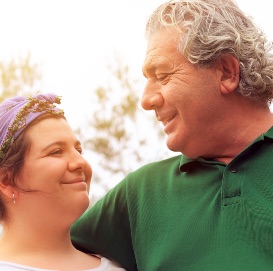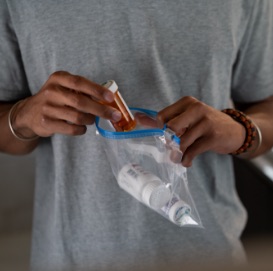UNDERSTANDING OPIOID TREATMENT

Opioid Use Disorder is a chronic brain disease. People suffering from the condition are physically dependent on opioids and have brain changes that affect their thinking and relationships. Medication can be used to treat it – just like we use medications for high blood pressure, diabetes and other chronic conditions.
WHAT ARE MEDICATIONS FOR OPIOID USE DISORDER?
Medications for Opioid Use Disorder, or MOUD, are FDA-approved medications that, when used in combination with counseling and behavioral therapies, provide a whole-person approach to the treatment of substance use disorders.
Treatment commonly includes one or more of these FDA-approved medications:
• Methadone
• Buprenorphine Products
• Naltrexone
MOUD are used to provide stability to individuals with Opioid Use Disorder, allowing individuals to address other things in their lives. Individuals can use MOUD throughout their recovery from Opioid Use Disorder.
WHY ARE MOUD SO EFFECTIVE?
MOUD help people stabilize so they can focus on long-term recovery.
MOUD are the most effective way to treat an Opioid Use Disorder. Individuals with Opioid Use Disorder experience dramatic swings of euphoric highs to intense lows of cravings and withdrawals, making it very difficult to pursue recovery on their own. MOUD support recovery by normalizing brain structure and function, alleviating withdrawal symptoms, reducing opioid cravings and decreasing the response to future drug use. By alleviating and reducing these symptoms, MOUD help individuals feel more like their normal selves, without causing a euphoric high. This allows people to participate more effectively in therapy.
Evidence shows people treated with MOUD are more likely to stay in treatment than those in therapy alone, reducing risk of relapse or overdose. The risk of death is cut in half for people with Opioid Use Disorder who are treated long term with methadone or buprenorphine according to a study by the National Academies of Sciences, Engineering, and Medicine.
MISUNDERSTANDING ABOUT MOUD
MOUD as part of comprehensive treatment is the most effective way to treat Opioid Use Disorder. However, many people misunderstand how MOUD works and why it is effective.
“MOUD just trade one addiction for another”
There is a common misconception that MOUD are just trading one addiction for another. MOUD bridge the biological and behavioral components of addiction. It alleviates withdrawal symptoms and cravings without causing a euphoric high, this helps stabilize a person physically to participate in therapy.
“MOUD are only for the short term”
Some believe that MOUD are only for short term treatment. While some people may only use MOUD short term, research shows those using MOUD for at least 1-2 years have the greatest rates of long-term success. There is currently no evidence to support benefits from stopping MOUD.
“My loved one’s condition is not severe enough to require MOUD”
MOUD utilize a multitude of different medication options (agonists, partial agonists and antagonists) that can be tailored to fit the unique needs of the patient. Treatment is shaped around the person’s individual needs, it’s not one size fits all.
“MOUD increase the risk for overdose in patients”
MOUD actually help to prevent overdoses from occurring. The medication blocks the effects of opioids, preventing relapse and the higher rick of overdose during a relapse. This effect supports people in their commitment to treatment.
“Providing MOUD will only disrupt and hinder a patient’s recovery process”
MOUD help the recovery process significantly. MOUD have shown to assist patients in recovery by improving quality of life, level of functioning and the ability to handle stress. Above all, MOUD help reduce mortality while people begin recovery, and stabilizes them so they are able to participate in treatment in a meaningful way.
“There isn’t any proof that MOUD are better than abstinence”
MOUD are evidence-based and are the recommended course of treatment for opioid addiction. The American Academy of Addiction Psychiatry, American Medical Association, The National Institute on Drug Abuse, Substance Abuse and Mental Health Services Administration, National Institute on Alcohol Abuse and Alcoholism, Centers for Disease Control and Prevention and other agencies emphasize MOUD as first-line treatment.
How do I help a loved one find treatment?
Friends and family members play an important role in connecting loved ones to effective treatment. The key to recovery is support and compassion, not judgement. If you have a friend or loved one with Opioid Use Disorder, you can help them by assisting in finding comprehensive treatment.
The Washington Recovery Help Line can connect you to MOUD options near you:
1.866.789.1511
www.WaRecoveryHelpline.org
The Washington Recovery Help Line is a free resource that connects you with a specialist that can discuss treatment options in your area and provide additional resources.
Call Washington Help Line today or use their online MOUD locator tool to understand the treatment options available near you.
recent topics

GET HELP
If you or your loved ones are suffering from addiction to opioids, now is the time to get help.
GET HELP





